Table Of Contents
- Best Low-Spread FOREX Brokers 2026
- Best Low-Spread FOREX Brokers 2026
- What Are Spreads?
- Why Spreads Are Important
- How Market Makers Determine the Spread
- How to Verify that a Broker Is Low Spread
- How Much Money Do You Need to Get Started?
- How to Avoid Losing at the Low-Spreads Game
- What to Look for Among the Best Low-Spread Brokers
- How to Choose the Best Low Spread FOREX Brokers
- Commission and Fees
- Using Leverage with Low-Spread Brokers
- Tradable Assets and Instruments
- Payments, Deposits, and Withdrawals
- Ask Other Traders on Our Network
- The Importance of Customer Service
- Trading Platforms, Tools, and Features
- Tips to Get Started Trading with a Low-Spread Broker
- How to Improve Your Knowledge of FOREX Trading
- Let’s Recap
- Arincen’s Review Methodology
Who Are the Best Low Spread FOREX Brokers in 2026?
With many years of meticulous FOREX broker testing, Arincen stands out as a voice of authority. Our analyses, shaped by exhaustive data collection, are trusted by many. Each year, we gather 120 data points from more than 100 brokers. Our team of more than 20 people collaborate extensively to produce high-quality broker reviews like this one. For a detailed explanation of how we test brokers, navigate to the bottom of this article.
Note: We earn money by selling ads, placements, or through partnerships with some companies we have agreements with, learn more.
Although brokers make their money from spreads, these fees can also affect a FOREX trader’s profitability. That’s why many FOREX traders, before settling on a broker, are chiefly concerned about finding a broker that offers the lowest spreads. No matter where you are in your trading career, due diligence is a crucial step you must conduct before trading, and also periodically as you go forward. Spreads can significantly affect your trading costs. Lower spreads ensure more of your money goes toward your trades rather than being lost in fees. Low spreads are what FOREX traders look for in a cost-effective FOREX trading experience. In what follows, we will share all the most important details regarding the top brokers known for their minimal spreads. We will also provide you with a curated list of the best lowest spread FOREX brokers.
Best Low-Spread FOREX Brokers 2026
| Company Name | Regulations | Minimum Deposit | Main Branch | |
|---|---|---|---|---|

ICM capital |
FCA | $200 | London | |
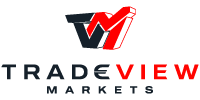
Tradeview |
SCA | $0 | New York, United States of America | |

XTB |
FCA | 0$ | United Kingdom | |

IG Group |
FCA | $250 | United Kingdom |

| Company Name | ICM capital |
| Regulations | FCA |
| Minimum Deposit | $200 |
| Main Branch | London |

| Company Name | Tradeview |
| Regulations | SCA |
| Minimum Deposit | $0 |
| Main Branch | New York, United States of America |

| Company Name | XTB |
| Regulations | FCA |
| Minimum Deposit | 0$ |
| Main Branch | United Kingdom |

| Company Name | IG Group |
| Regulations | FCA |
| Minimum Deposit | $250 |
| Main Branch | United Kingdom |
Best Low-Spread FOREX Brokers 2026

ICM capital
ICM Capital is a UK-origin broker that operates worldwide. The firm provides access to diverse trading products, including FOREX, commodities, futures, and indices. ICM offers a secure and efficient trading environment by combining advanced technology with deep liquidity. The company prides itself on delivering high liquidity, tight spreads, mobile trading, and advanced technical analysis.
Why we picked ICM Capital
For its robust regulatory framework and global oversight. Its presence across multiple jurisdictions demonstrates a genuine commitment to investor protection. This foundation makes it a dependable choice for both new and seasoned traders.
| Broker Evaluation | 9.11 |
| Regulations | FCA |
| Minimum Deposit | $200 |
| Islamic Account | yes |
| Payment Methods | Bank transfer, credit card, Electronic Banks, Crypto |
| Main Branch | London |
| Customer Service | Market Opening Hours |
| Demo Account | Yes |
| Trading Platforms | MT4, MT5, C TRADER, Web Platform |
Pros
-
Segregated client funds.
-
Regulated by the UK’s FCA.
-
Long trading history from 2009.
-
More than 300,000 traders, showing trust.
-
Decent funding options.
-
No swaps.
-
MetaTrader4 (MT4) desktop and mobile download.
-
Competitive spreads
-
ECN spreads starting from zero pips.
-
Fast execution and no-requotes.
Cons
-
No proprietary platform.
-
No US services.
-
Limited cryptocurrency offerings.
-
Inactivity fees which deter casual traders.

Tradeview
Tradeview Markets, the parent company of Tradeview Forex, was established in 2004 and is headquartered in the Cayman Islands. It is committed to offering a broad and accessible trading environment through ECN trading with direct access to dozens of banks and prime liquidity providers, ensuring tight spreads. The broker offers access to a wide range of financial instruments, including FOREX, indices, stocks, cryptocurrencies, and commodities.
Why we chose Tradeview
Our choice was influenced by this broker’s transparent fee structure and competitive pricing, with low spreads and clear cost disclosures. Traders benefit from predictable pricing without hidden charges. Cost efficiency is a crucial advantage in high-frequency and active trading environments.
| Broker Evaluation | 10.00 |
| Regulations | SCA |
| Minimum Deposit | $0 |
| Islamic Account | Yes |
| Payment Methods | Bank Transfer, Credit Cards, Crypto, Electronic banks, local deposits |
| Main Branch | New York, United States of America |
| Customer Service | |
| Demo Account | Yes |
| Trading Platforms | Metatrader 4, Metatrader 5, cTrader, API/FIX |
Pros
-
Variety of trading platforms, such as MT4, MT5, cTrader, and Currenex, catering to different trading preferences and strategies.
-
Provides ECN trading through its innovative Liquidity Connector®, granting direct access to over 50 banks and liquidity providers. Offers tight spreads starting from 0 pips.
-
A low minimum deposit of only $0 is required to start trading, making it accessible to a wide range of traders.
-
Offers a broad range of financial instruments, including FOREX, indices, stocks, cryptocurrencies, and commodities, thus catering to diverse trading interests.
-
Offers educational materials and a demo account, suitable for both beginners and experienced traders looking to refine their strategies.
-
Supports automated trading through the use of Expert Advisors (EA) on MT4 and MT5 platforms.
-
Regulated by CIMA, MFSA, and will soon be regulated by the UK’s Financial Conduct Authority (FCA).
-
Offers global customer service in multiple languages, catering to international traders.
-
Offers competitive leverage up to 400:1.
-
Charges no fees for deposits, making it cost-effective for traders to fund their accounts.
Cons
-
While regulated by CIMA and the MFSA, the broker is still in the final stages of becoming regulated by the tier-one FCA.
-
This means, unfortunately, that the broker currently has no way of offering compensation to affected traders if the broker goes bust. Of course, once FCA regulation is obtained, it will be mandatory for the broker to be part of the Financial Services Compensation Scheme (FSCS) where you could be entitled to compensation of up to £85,000.
-
Trades on the Innovative Liquidity Connector® account are subject to commission charges, which may add to trading costs.
-
Lacks a dedicated mobile app, relying instead on the mobile versions of its available trading platforms.
-
While offering high leverage up to 400:1 can be an advantage, it also introduces significant risks, especially for new traders.

XTB
XTB is a well-regarded broker known for its low costs, extensive asset selection, and advanced trading tools. Founded in 2002 in Poland, it has created a proprietary xStation 5 platform that offers robust features like real-time performance stats, sentiment analysis, and heat mapping. XTB's educational resources are comprehensive, catering to all skill levels with video tutorials, guides, and an accessible Trading Academy. XTB is an excellent choice for cost-conscious traders looking for diverse investment options and high-quality support.
Why we chose XTB
We chose this broker for its responsive and multilingual customer support, available across channels when assistance is needed most. Quick, professional responses reduce friction and build trader confidence. Support quality often reflects overall service reliability.
| Broker Evaluation | 8.55 |
| Regulations | FCA |
| Minimum Deposit | 0$ |
| Islamic Account | yes |
| Payment Methods | Bank transfer, Credit Card, Electronic Banks |
| Main Branch | United Kingdom |
| Customer Service | Market Opening Hours |
| Demo Account | Yes |
| Trading Platforms | MT4, xStation |
Pros
-
20-year history of operation.
-
Regulated by the FCA (UK) and CySEC in Cyprus.
-
Globally recognized, having won multiple awards.
-
Some of the lowest FOREX spreads in the market.
-
Offers protection for client accounts.
-
Emphasis on customer service.
-
Excellent support, as well as learning and research tools.
Cons
-
Does not accept US clients.
-
Number of instruments offered is average-sized.
-
No GSLO.
-
No back-testing or automated trading capabilities.
-
No social trading.

IG Group
IG Group is a highly regarded publicly traded broker that is licensed by 10 regulatory bodies, including the FCA, in its home base of the UK. It offers more than 17,000 financial assets to trade, including currencies, commodities, regular stocks, contracts for difference stocks, ETFs, indices, and cryptocurrencies. Further, it has its own state-of-the-art trading platform and offers a relatively low spread.
Why we chose IG Group
For its clear commitment to transparency and fair dealing, with open terms and client-friendly policies. Honest reporting builds trust and fosters long-term client relationships. We value brokers who prioritise clarity over complexity.
| Broker Evaluation | 8.54 |
| Regulations | FCA |
| Minimum Deposit | $250 |
| Islamic Account | yes |
| Payment Methods | Bank transfer - credit card - Electronic Banks |
| Main Branch | United Kingdom |
| Customer Service | Market Opening Hours |
| Demo Account | Yes |
| Trading Platforms | IG Trading, MT4,ProRealTime,L2 Dealer |
Pros
-
Intuitive mobile and tablet platforms.
-
Low spread costs.
-
Client education offering extensive research materials.
-
Regulated by many reputable authorities.
-
UK and EU clients get negative balance protection.
-
Financially stable and publicly-listed.
-
Rapid response to customer service queries.
-
Extensive range of trading assets.
-
Powerful social trading community.
Cons
-
U.S. clients are limited to FOREX trading only.
-
U.S. clients do not receive negative balance protection.
-
IG CFD prices can be high by industry standards.
-
Limited product portfolio of only CFD and options in many countries.
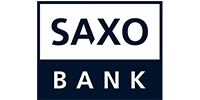
SAXO BANK
Saxo Bank is a well-established, low-risk broker based in Denmark that offers a wide range of trading services to sophisticated traders, institutions, and professional investors. It operates under strict regulatory oversight, ensuring a secure trading environment. The broker provides advanced trading platforms, including SaxoTraderPRO and SaxoTraderGO, catering to high-volume and professional traders with competitive spreads and access to over 71,000 instruments.
Why we chose Saxo Bank
For its comprehensive product range, spanning forex, commodities, indices, and popular CFDs. Such variety allows traders to build diversified portfolios within a single account. This breadth of markets supports evolving strategies and risk preferences.
| Broker Evaluation | 8.09 |
| Regulations | FCA |
| Minimum Deposit | $0 |
| Islamic Account | No |
| Payment Methods | Bank transfer, Credit Card |
| Main Branch | Copenhagen, Denmark |
| Customer Service | Market Opening Hours |
| Demo Account | Yes |
| Trading Platforms | SaxoTrader |
Pros
-
Extensive range of offerings.
-
Offers portfolio-based margin trading for pros.
-
Regulated by top regulators.
-
Excellent trading platforms.
-
Diverse account types.
-
Among the industry’s best research tools.
-
Offers protection for client accounts.
-
No inactivity fee.
-
No platform fees.
-
No minimum funding for entry-level accounts.
Cons
-
Some bonds, options, and futures fees are high.
-
With so many assets, fees can be confusing.
-
High minimum deposit for Platinum and VIP accounts.
-
Does not accept US clients.
-
No MT4 for traders who are used to the platform.
-
No GSLO.
-
No Islamic accounts.

CMC MARKETS
CMC Markets is a global CFD and FOREX broker established in 1989. It is regulated by several authorities globally. The company delivers a formidable offering for traders thanks to excellent pricing, nearly 12,000 tradable instruments, and its proprietary Next Generation trading platform. The platform comes packed with quality research, innovative trading tools, and powerful charting. CMC provides traders with access to an extensive range of CFDs and spread betting across several asset classes.
Why we chose CMC Markets
This broker’s risk management tools and flexible order types stood out to us, enabling traders to tailor positions according to market conditions. Features like stop losses, take profits, and conditional orders provide strategic control. These tools are essential for disciplined trading.
| Broker Evaluation | 8.07 |
| Regulations | FCA |
| Minimum Deposit | 0$ |
| Islamic Account | No |
| Payment Methods | Bank transfer, Credit Card, Electronic Banks |
| Main Branch | United Kingdom |
| Customer Service | Market Opening Hours |
| Demo Account | Yes |
| Trading Platforms | Proprietary Platform, MT4, Web Platform |
Pros
-
Extensive range of offerings.
-
Regulated by the FCA (UK) and other top regulators.
-
Low FOREX fees.
-
Emphasis on education and customer service.
-
Great Web and mobile platforms.
-
Offers protection for client accounts.
-
Research amenities are industry leading.
Cons
-
Does not accept US clients.
-
High CFD spreads for certain indices.
-
It only offers CFD trading, so traders cannot own the underlying asset.
-
Does not support deposits and withdrawals through electronic payments.

think markets
ThinkMarkets is a multi-regulated broker with offices around the globe. The firm is primarily a CFD broker, allowing you to trade across 4,000 instruments in FOREX, futures, commodities, indices, ETFs, crypto, and stocks. With an emphasis on superior customer service, ThinkMarkets maintains round-the-clock support in several languages. It provides different trading accounts suited to individual traders' needs. This includes zero-commission accounts and access to trading guides, analysis tools, and industry news feeds.
Why we chose ThinkMarkets
We selected this broker for its fast and flexible funding options, including bank transfers and card payments. Smooth deposits and withdrawals reduce administrative delays and support efficient capital management. Accessibility of funds is an often-overlooked but essential feature.
| Broker Evaluation | 8.05 |
| Regulations | FCA |
| Minimum Deposit | $0 |
| Islamic Account | Yes |
| Payment Methods | Bank transfer - credit card - Electronic Banks - Crypto |
| Main Branch | Australia |
| Customer Service | Market Opening Hours |
| Demo Account | Yes |
| Trading Platforms | Proprietary Platform, Web Platform, MT4, MT5 |
Pros
-
Beginner assistance is offered through round-the-clock channels.
-
Spreads are as low as 0.0 pips.
-
Round-the-clock expert customer service.
-
CFD shares and indices come at no extra fee.
-
Zero broker fees for FOREX trading.
-
Technical analysis and quality market information.
Cons
-
No binary options are offered.
-
Commissions are charged for two account types.
-
Range of tradeable assets is not as wide as some competitors.
-
No US clients allowed.
There is a high degree of risk involved in trading securities like FOREX, or CFDs, which are highly complex instruments. As a trader, you could be exposed to excessive leverage, questionable broker tactics, market volatility, and limited regulatory protection. Despite your best trading techniques and risk management strategies, your efforts may not be profitable, and you could suffer losses.
What Are Spreads?
FOREX trading is all about exchanging one currency for another. To create a universal language in which everyone understands the value of a currency in relation to another, currency A is quoted in terms of its price in currency B. This is known as the exchange rate. The spread is the difference between the exchange rate that a broker sells a currency and at which the broker buys that currency.
Let us explain further and show you spreads in action. When you invest in a currency at the prevailing exchange rate, otherwise known as the spot rate, and later sell it for a profit, the difference between what you bought it for and what you sold it for is your gain (or loss) on the spread.
Let’s look at a common example. The EUR/USD is one of the most traded currency pairs in the world, where EUR (Euro) is the base currency, and USD (U.S. Dollar) is the quote currency. When we look at the EUR/USD exchange rate, we're essentially seeing how much 1 euro is worth in U.S. dollars.
For instance, if the EUR/USD exchange rate is 1.1000, this means 1 Euro is equivalent to 1.10 U.S. dollars. When trading, you'll encounter two prices: the bid and the ask. The bid is the price at which you can sell the base currency (here, the Euro), and the ask is the price at which you can buy the base currency.
Suppose the bid price for EUR/USD is 1.0995, and the ask price is 1.1005. The spread, which is the cost of the trade, is the difference between these two prices. In our example, the spread would be 1.1005 (ask) - 1.0995 (bid) = 0.0010, or 10 pips (a pip is the smallest price move that a given exchange rate can make based on market convention). Read our article on pips here.
Now, let's say you believe the Euro will strengthen against the Dollar, so you buy €100,000 at the ask price of 1.1005 USD for each Euro. This means you're spending $110,050 for your Euros (100,000 Euros X 1.1005 USD/Euro).
Time passes, and your prediction comes true! The Euro strengthens against the Dollar, and the new EUR/USD rate is 1.1025 bid / 1.1035 ask. You decide to take your profit and sell your €100,000. Since you're selling, you'll do so at the bid price of 1.1025. So, you receive $110,250 (100,000 Euros X 1.1025 USD/Euro).
Your profit is the selling price minus the buying price: $110,250 (selling price) - $110,050 (buying price) = $200. Despite the Euro only moving 20 pips against the Dollar (from 1.1005 to 1.1025), you've made a profit! However, part of this movement was to cover the spread (the 10 pips difference between the bid and ask price when you initially bought the Euros), and the remaining move provided your profit. This illustrates how gains or losses in FOREX trading can come from both the currency's price movement and the initial spread cost.
Why Spreads Are Important
It’s clear from the above example why choosing a broker with low spreads can help you maximize your profitability. In retail FOREX trading, securing the best spreads is like laying a strong foundation for a building: it's essential for ensuring long-term success and stability of your trading endeavors.
Spreads directly impact the cost of trading. Lower spreads mean lower trading costs, allowing you to keep a larger portion of your gains. Especially for those who trade frequently or with large volumes, the cumulative effect of spreads can be huge.
Furthermore, competitive spreads can offer a clearer picture of the market price, leading to more accurate trading decisions. In a market where profit margins can be thin, and every pip counts, finding a broker that offers the lowest possible spreads can make a significant difference in whether you make money or spend your time paying fees.
How Market Makers Determine the Spread
So, who really sets the spread? It’s not really the broker. They are a small part in a larger chain. The FOREX market is a virtual world where intermediaries known as market makers coordinate transactions. They are often highly-trained specialists, individuals, or small agencies, based in cities all over the world.
In truth, it is the big players, like large financial institutions, that drive the most FOREX volumes, not retail traders, who are but a small part of the ecosystem. Market makers are skilled and experienced at ensuring an orderly flow of buy-and-sell orders for the currencies in which they work. They have many clients around the globe and they are skilled at brokering massive transactions.
There is implied risk in this process as prices can change quickly, so market makers must insert a premium that involves elements of their own profit plus a premium for risk. In coordination, market makers across the ecosystem help determine the spread equilibrium of global currencies. Then, retail brokers follow their lead. For you as a retail trader, it helps to understand that your broker procures its FOREX from a market in which prices are influenced by market makers, and this is how you are presented with the spreads you see on your FOREX quote.
How to Verify that a Broker Is Low Spread
There’s really no getting around, other than helpful comparison articles like the one you are reading now; nothing substitutes good, solid research when trying to find the best spread brokers. Here is some of the legwork you can do:
Check broker websites: Start by visiting the websites of various brokers. Most brokers transparently list their average spreads for major currency pairs on their site, providing a direct comparison tool.
Use demo accounts: Open demo accounts with several brokers. Demo trading allows you to observe the spreads in real-time under live market conditions without risking real money.
Read reviews and forums: Look for user reviews and discussions in trading forums. These can offer insights into the actual spreads experienced by traders and any issues related to the widening of spreads under certain conditions.
Analyze trading costs: Consider not just the spreads but also any additional fees that might apply, like commissions or swap rates, to get a comprehensive view of trading costs.
Check for spread consistency: Pay attention to whether a broker offers fixed or variable spreads and how these spreads might fluctuate during major economic announcements or at different times of the day.
Regulatory compliance: Ensure the brokers are well-regulated by reputable authorities. While not directly related to spreads, regulatory compliance is a good indicator of the broker's reliability and fairness in pricing.By meticulously evaluating these factors, you can better compare the spreads offered by different brokers, ensuring that you select one that aligns with your trading strategy and cost considerations.
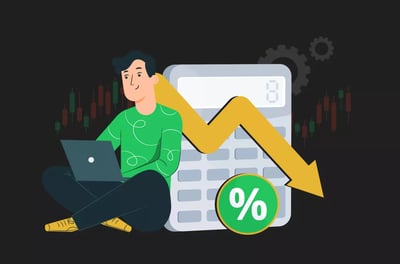
How Much Money Do You Need to Get Started?
You don’t need much to get started. Some of the best FOREX brokers for beginners allow you to start trading with as little as $1. Of course, you need to capitalize your account with at least some money that will allow you to place trades. The amount is really up to you. However, it is recommended that you start by placing small trades to get to grips with the practice of trading as well as your broker’s Website before you move on to placing trades with more money.
How to Avoid Losing at the Low-Spreads Game
We get it, comparing spreads is a laborious process. However, it’s something you simply must do. We hate to be the bearer of bad news, but some brokers have been known to artificially inflate spreads during volatile market conditions, quoting spreads that are consistently wider than advertised, or implementing slippage that always seems to work against the trader.
These practices not only erode traders' profits but can also significantly impact the trustworthiness and perceived integrity of the FOREX trading industry. It’s tough to say, but it’s true. Fortunately, a well-regulated broker is more likely not to engage in these activities as regulators exist to protect the interests of traders like you. However, to be extra certain, you can guard against these deceptive practices through these measures:
Research and education: Have we mentioned this before? Educate yourself about normal spread ranges for different currency pairs and trading conditions. Knowing the average spreads for the major, minor, and exotic pairs in which you're interested can help you spot anomalies.
Broker transparency: Look for brokers that are transparent about their spread policies and trading conditions. Brokers regulated by reputable financial authorities are often required to maintain a level of transparency and fairness in their operations.
Regulatory protection: Trade with brokers regulated by credible financial authorities like tier-one regulators. These organizations ensure that brokers adhere to certain standards and practices, offering a layer of protection to traders.By staying informed and vigilant, you can better navigate the FOREX market and protect yourself against unfair spread practices, ensuring a more transparent and equitable trading environment.
A regulated broker adheres to a stringent set of guidelines and operational standards, designed to ensure transparency, security, and integrity in all transactions. Electing to trade with an unregulated broker amplifies the risk of financial loss, fraud, and exposure to unethical practices. For a list of the best regulators, read our article here.
What to Look for Among the Best Low-Spread Brokers
When embarking on the quest to find the best low-spread broker tailored to your trading needs, several important matters should guide your selection process:
Genuine low spreads: It might seem obvious, but it's crucial to thoroughly verify that the brokers in question genuinely offer low spreads. This doesn't just mean glancing at their advertised rates; delve deeper by examining real-time spread data during different market conditions.
Inclusive trading environment: Opt for brokers that not only accommodate traders from diverse geographical backgrounds but also cater to a wide range of trading experiences, from newbies to veterans.
Powerful reputation: In the FOREX market, a broker's reputation is its currency. Focus your search on brokers that are renowned for their reliability and trustworthiness.
Cost efficiency: While low spreads are a priority, don't overlook the overall cost of trading. Assess brokers based on their complete fee structure, including any commissions and hidden charges, to ensure you're getting the best deal.
Advanced trading platforms: A superior trading experience hinges on the quality of the trading platform. Seek out brokers that offer advanced, intuitive platforms equipped with a suite of analytical tools to enhance your trading strategy and decision-making process.
Varied account options: Recognizing the diversity in trading strategies and experience levels, the best low-spreads and low-commission brokers should offer a range of account types to suit different trader needs, allowing for a more customized trading experience.
By keeping these factors in mind, you'll be well-equipped to sift through the multitude of brokers available and select one that not only promises but also delivers on the promise of low spreads, complemented by a robust trading environment.
Tip for those who have no experience
We believe that a solid foundation in education and research is essential for every successful trader. That’s why we’ve created a set of resources specifically for you. Our comprehensive articles provide an understanding of the basics, while our videos offer insights from industry insiders. Stay updated with the latest developments in the market through our newsfeed, signals, and detailed analytics.
The best retail broker is the one that fits your trading style and goals. Check how much they charge in spreads and commissions, and make sure they’re licensed by a top-tier regulator. Look for fast execution and platforms that are easy to use on mobile. Above all, test their customer support before funding your account.
How to Choose the Best Low Spread FOREX Brokers
Follow the next tips to choose the best low spread broker:
Commission and Fees
This area of consideration is crucial and requires your close attention. For a start, low-spread brokers must offer you a competitive fee package. Trading fees can sometimes be difficult to track. Be sure to check how these fees compare with industry standards:
Spreads: There are two main kinds of spread, one is fixed and the other is variable. As we have said, the spread refers to the difference or gap between two prices, such as the bid/ask rate in a currency exchange rate. An example of a good spread is 1.4 pips for the EUR/USD (the narrower the better, this means that a spread of 1.4 pips is better than a spread of 2 pips).
Commission: This is nothing more than the service charge that brokers require for carrying out transactions on behalf of their clients.
Rollover fees: When you leave a trade open overnight, the broker normally charges a rollover fee for the facility of holding your trade open for that period of time. This is because it assumes the risk of the market changing adversely.
Withdrawal and Deposit Fees: Some platforms might charge fees for depositing or withdrawing funds. Pay attention to this. It's important to be aware of these and any associated limits or conditions.
Subscription or Inactivity Fees: Certain platforms have monthly charges or fees for inactive accounts. Ensure you're aware of these potential costs.Focusing on these aspects ensures that you engage with a broker not only offering low spreads but also maintaining a transparent and fair fee structure, crucial for optimizing your trading outcomes.
To assess trading costs accurately, the Arincen research team examined broker pricing across multiple sources, combining published fee schedules with observed trading conditions. Our analysis focuses on spreads, commissions, and additional charges that impact traders in practice. You can see the consolidated findings in the table that follows.







| Spread | Commission | Swap | Islamic Account | |
| Currencies | Starting from 1.3 Pips | 0$ | No | Available |
| Stocks | Starting from 18 Pips | 0$ | Yes | Unavailable |
| Commodities | Starting from 2.3 Pips | 0$ | No | Available |
| Indices | Starting from 4 Pips | 0$ | Yes | Unavailable |
Using Leverage with Low-Spread Brokers
This is linked to the points we made about regulation. Different regulators have different guiding policies in leverage. Consider this, with brokers based in Europe operating under the rules of the European Securities and Markets Authority (ESMA), the leverage for FOREX trading is heavily regulated. Because of this, you can only get leverage of:
30:1 for major currency pairs
20:1 for non-major currency pairs, gold, and major equity indices
10:1 for commodities other than gold and non-major equity indices
5:1 for individual equities and any underlying not otherwise mentioned
2:1 for cryptocurrencies
So, how do spreads and leverage interact? We’ll tell you how:
High Leverage:
High leverage can make even small spread differences more impactful. With high leverage, the relative cost of the spread becomes a smaller portion of the initial investment but a larger portion of the potential profit or loss. For example, if you use 100:1 leverage, a small adverse move in the exchange rate can quickly lead to significant losses, making the cost of the spread more critical in short-term trading strategies.
Low Leverage:
With low leverage, the impact of spreads on overall profitability is more straightforward. The cost of the spread represents a more direct expense against potential profits since the position sizes are smaller and the risk of a rapid loss is reduced. Traders might be more willing to accept higher spreads for other benefits, such as better customer service or more sophisticated trading tools.
Interaction:
The interaction between leverage and spreads is a balance of risk management and cost efficiency. High leverage can make trades more sensitive to spread costs, especially in strategies that rely on small price movements. Therefore, competitive (low) spreads become more critical as they can significantly affect profitability. On the other hand, with low leverage, the absolute cost of spreads becomes more directly significant to the trade's outcome, making competitive spreads important for maintaining profitability, especially in strategies with fewer, larger trades.
Retail traders should be cautious when trading with high leverage due to the significant risks involved. While leverage can increase gains, it can also magnify losses. You should be careful when trading with high leverage, that’s why you need the right knowledge and experience to handle the highs and lows that come with this form of trading.
Tradable Assets and Instruments
Spreads play a pivotal role in the trading of a diverse array of financial assets, influencing not just the immediate cost of trading but also the broader strategy and profitability of investments. This is particularly true for markets such as FOREX, commodities, cryptocurrencies, bonds, and stocks. Each of these asset classes is subject to the dynamics of bid and ask prices, and, hence, spreads. A lower spread means less cost to the trader for each transaction, which is especially crucial in fast-moving markets where traders capitalize on small price movements.
FOREX markets are attractive for their tight spreads, making them a focal point for traders seeking cost efficiency alongside high liquidity. Commodities and cryptocurrencies, while also benefiting from competitive spreads, can exhibit wider fluctuations due to market volatility. Bonds and stocks, on the other hand, might see varying spreads based on liquidity, market conditions, and the specific assets in question.
For traders looking to diversify across different financial assets, understanding how spreads affect each market is key. Brokers that offer low spreads across a broad spectrum of assets provide a more cost-effective trading environment. This is why it's a good idea to conduct a comparative analysis, possibly using a spreadsheet, to evaluate how different brokers stack up in terms of spreads across the assets of interest. The choice of broker can significantly impact your trading costs and strategy, highlighting the importance of spreads as a critical consideration in the selection process.
As part of our evaluation process, the Arincen team gathered and cross-checked broker pricing from official documentation and live trading environments. This approach allowed us to compare spreads, commissions, and fees under actual market conditions. The breakdown of our findings is presented in the table that follows.
| Brokers | Currency pairs | Stocks | Indices | Commodities | Crypto | ETFs |
| Tradview | 80 Pairs | 5000 Shares | 10 Indices | 10 Commodity | 30 Coins | Unavailable |
| ICM Capital | 67 Pairs | 89 Shares | 17 Indices | 12 Commodity | 6 Coins | Unavailable |
| XTB | 57 Pairs | 1848 Shares | 36 Indices | 22 Commodity | 22 Coins | 135 ETFs |
| IG | 81 Pairs | 21714 Shares | 49 Indices | 39 Commodity | 11 Coins | 12858 ETFs |
| Saxo Bank | 320 Pairs | 22000 Shares | 49 Indices | 39 Commodity | 9 Coins | 6700 ETFs |
| CMC Markets | 330 Pairs | 8000 Shares | 80 Indices | 100 Commodity | 18 Coins | 200 ETFs |
| Think Markets | 46 Pairs | 3750 Shares | 15 Indices | 11 Commodity | 21 Coins | 350 ETFs |
Payments, Deposits, and Withdrawals
Ideally, the payment deposit and withdrawal process among low-spread brokers should be straightforward and convenient. The best low-spread and low-commission brokers operate in a modern financial infrastructure where the banking system is advanced, making transactions, including withdrawals from brokerage accounts, relatively straightforward for all traders. The best brokerages offer multiple withdrawal methods, including bank wire transfers, credit/debit card transactions, and even online payment systems. The efficiency of these methods can vary, so be sure to read what your chosen broker says that it can do in this area.
Our pricing review draws on Arincen’s independent research, where we analysed broker cost structures using both advertized rates and real-world trading data. By comparing spreads, commissions, and related fees, we aimed to reflect what traders are likely to experience. The outcome of this assessment is displayed in the table below.







| Method | Credit Card | Wire Transfer | Skrill | Neteller | Cryptocurrency | PayPal |
| Deposit fee | 0$ | $0 + Bank commission | 1.9% | 2.5% | Unavailable | 3.75% |
| Withdrawal fee | 0$ | $15 | 1% | $0 | Unavailable | 2% |
Ask Other Traders on Our Network
Here at Arincen, we’ve gone to extensive lengths to create an enabling environment of networks, where traders of all backgrounds can take part in a vibrant trading space. After all, Arincen’s goal is to simplify the world of trading. Our website provides an unrivaled selection of tools, like our market-leading signals, rolling news, and a thriving community where traders of all levels of experience can learn and profit from each other.
The Importance of Customer Service
As timing is key to FOREX trading, you must pick a low-spread broker that is able to provide good customer support around the clock. This most notably includes the company representatives being easy to reach, fast, and polite, which will, in turn, spare you having to worry about problems down the road.
Based on in-house analysis by the Arincen team, we reviewed pricing data from both official broker websites and live market conditions. This included spreads, commissions, and trading fees observed in real use. The results of that comparison are summarized in the table below.







| Live Chat | Phone | |||
| Available | Available | Available | Available | Available |
| Quick response | Quick response | Fast | Fast | Fast |
Trading Platforms, Tools, and Features
The best low-spread brokers distinguish themselves not only through their competitive spreads but also via the robustness of their platforms, tools, and features, which are designed to empower you to make informed decisions and execute trades efficiently.
An advanced trading platform is important, offering a seamless and intuitive user experience with real-time access to market data, charts, and analysis. Such platforms should incorporate advanced charting tools and technical indicators that help traders to identify trends and opportunities in markets where low spreads can make a significant difference to profitability.
Also, these platforms might offer automated trading capabilities, allowing you to capitalize on tight spreads without constant market monitoring. Risk management tools, including stop-loss and take-profit orders, become crucial in a low-spread environment, helping to protect gains and limit losses by automatically executing trades at predetermined levels.
Furthermore, educational resources and demo accounts are essential features, enabling traders to understand how spreads work across different assets and practice strategies without financial risk. Finally, mobile trading apps extend the functionality of desktop platforms, ensuring traders can react swiftly to market movements from anywhere, at any time. The synergy between low spreads and these sophisticated trading tools and features allows traders like you to optimize your strategies, manage risks effectively, and enhance your trading performance.
Tips to Get Started Trading with a Low-Spread Broker
Opening a FOREX trading account is easy. Once you have chosen your preferred low-spread broker, you must start by filling out an application form as part of the “open account” process. It is normal that you will be asked to provide two documents. These are usually your national identity documents and proof of address. This is part of Know Your Customer (KYC) regulations. Remember that some brokers have slightly different requirements than others.
Once your account has been approved, normally one to two days after you make the application, you will be able to fund your account by making the first deposit. After your account is funded, you can start to trade.
How to Improve Your Knowledge of FOREX Trading
A trading website like en.Arincen.com is a great place to start. We have a large list of curated articles that can give you all the information you need on common FOREX trading terms, like pips, spreads, leverage, and support and resistance. We have also taken the time to prepare detailed articles on important topics, such as FOREX trading strategies. Additionally, once on our Website, you will find helpful video courses that cover the basics of FOREX trading. With this range of knowledge, you will be well on your way to trading success.
Remember also that your broker itself will normally have developed a detailed education and research repository. That is also a good place to bolster your FOREX knowledge, with the extra benefit that your broker’s information will be slanted toward its own platform and resources, which makes it doubly useful.
As such, it’s relatively easy to improve your knowledge of FOREX trading. All the following items should be part of a low spread broker arsenal, and they should all help you improve your knowledge of FOREX trading.
Educational Content: For beginners, educational resources are crucial. Look out for platforms offering webinars, tutorials, articles, and even demo accounts to familiarize users with trading concepts.
Analytics Tools: The platform should offer robust analytical tools and many methods to evaluate trader performance. This includes historical returns, risk metrics, trading strategies, and more.
Community Engagement: A vibrant community can provide peer reviews, insights, and discussions, which can be invaluable for both novices and experienced traders.Real-time Data: This is the lifeblood of social trading. Make sure your broker gives you access to live market data, news updates, and economic calendars that can help in making informed decisions
Tip: Invest in Your knowledge
For every aspiring retail trader, knowledge is key to a successful trading journey. We invite you to delve into Arincen's goldmine of insights, strategies, and expert analyses. Whether you're just embarking on your trading venture or trying to level up your trading game, our resources are designed to give you all the information you need. Visit our educational resources here.
Let’s Recap
In this article about the best low spread FOREX brokers for 2026, we've delved deeply into what makes a broker stand out in the fiercely competitive FOREX market and beyond. The main takeaway is that you should always carry out diligent research in selecting a broker that aligns with your trading strategy and goals. This will help you to understand the intricacies of spreads and how they influence your trading costs and profitability.
Beyond costs, we stressed the importance of choosing a broker that offers a robust trading platform, diverse financial instruments, and excellent customer service to support your trading journey. As the FOREX market continues to evolve, staying informed and vigilant against unfair practices will be key to navigating the complexities of trading. By focusing on brokers that not only promise but also deliver on their low-spread offerings, you'll be well-positioned to thrive in the dynamic world of FOREX trading.
Arincen’s Review Methodology
The team at Arincen collected more than 120 pieces of data covering in excess of 100 licensed FOREX companies. Data collection was done in three ways:
Companies’ websites.
Other websites that have ranked FOREX companies.
A survey questionnaire (referred to here as Survey “1”) was sent to the companies invited to participate in the exercise. We have identified 13 criteria for our assessment, each containing several aspects and carrying its relative weight. These include licensing, deposits and withdrawals, number of assets, etc.
Afterward, we validated the data by:
Registering with FOREX companies as a secret shopper and/or as Arincen.
Survey number “2,” in which we asked these companies’ customers for important feedback and past experience.
The next step saw us evaluate and rank each company, relying on the hard work of 15 Arincen employees. We were cautious in ensuring the most accurate assessment possible, including taking into account different languages, as well as the various mobile-app operating systems, e.g., Apple, Samsung, etc.
To add credibility to our research project, we sent a third and final survey (referred to here as Survey “3”) to enable participating FOREX companies to evaluate our own research and whether it accurately reflects the realities on the ground. We were fortunate enough to receive a mark of 9.9 out of 10! We have kept to a minimum the margin of error, which stood at a measly 1%. To learn more about how we came up with the evaluation, please click here.
FAQ
FOREX trading involves buying one currency while selling another, aiming to profit from the changes in their relative values.
Research and compare brokers based on factors like regulations, spreads, the leverage offered, platform usability, customer service, and client reviews. It's essential to select a broker regulated by a reputable authority.
As we have said, you can’t go wrong with any one of these powerful low spread brokers: ICM, XTB, IG, Saxo Bank, Dukascopy, CMC Markets, and ThinkMarkets.
Trust in FOREX brokers should be based on their credibility, transparency, and regulatory compliance. Look for brokers that are regulated by reputable financial authorities, have a transparent trading and fee structure, and offer robust customer support. It’s also wise to seek out reviews and feedback from other traders. Ultimately, your trust should be earned through consistent and transparent practices.
FOREX trading and gambling share the commonality of risk, but the similarities largely end there. Successful FOREX trading requires analysis, strategy, and an understanding of market indicators, making it more akin to investing than gambling.
Many FOREX traders fail due to a combination of high expectations, lack of a solid trading plan, insufficient knowledge of the market, poor risk management, and emotional decision-making. Trading without understanding market forces, overleveraging positions, and failing to set stop-loss orders are common pitfalls. Success in FOREX trading often requires patience, discipline, continuous learning, and the ability to adapt strategies as markets change.
Yes, it is possible to make a living trading FOREX, but it's far from guaranteed and involves significant risks. Making a consistent income through FOREX trading requires a deep understanding of the markets, a well-thought-out trading strategy, effective risk management, and the discipline to adhere to your trading plan.

